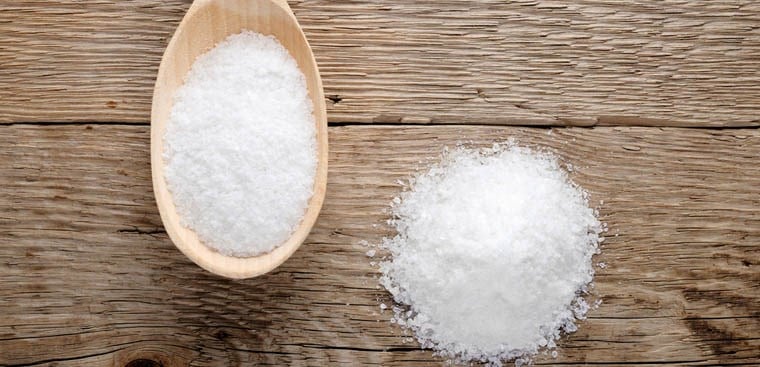Managing Blood Pressure: 5 Golden Rules to Follow
For effective blood pressure management, it’s crucial to follow these doctor-approved guidelines:
1. Mind Your Salt Intake
Consuming excessive amounts of sodium found in salt can lead to increased sodium levels in the blood. This puts pressure on the kidneys, forcing them to work harder to filter the blood.
Over time, high sodium levels in the blood can overwhelm the kidneys, impacting their ability to function optimally. As a result, it increases osmotic pressure in the blood vessels, causing water to move into the vascular system and leading to increased blood volume and elevated blood pressure.

High Salt Intake Raises Blood Sugar Levels
Therefore, individuals with high blood pressure are typically advised to monitor their salt intake, limiting it to no more than 1.5 grams of salt per day.
For those with a normal body constitution, experts recommend maintaining a daily salt intake of no more than 5 grams for most adults.
2. Embrace a Healthy Diet and Curb Alcohol and Tobacco Consumption
Your dietary habits can significantly influence your blood pressure. A healthy diet is key to maintaining a reasonable weight and avoiding obesity, a primary driver of high blood pressure.
According to experts, a nutritious diet is essential to mitigating health risks, including hypertension. It involves ensuring a balance of essential nutrients, increasing fiber intake, and minimizing consumption of harmful foods like processed, fried, and grilled items that are rich in trans fats, which are associated with chronic conditions such as diabetes and cardiovascular disease.

Smoking and Alcohol Elevate Blood Sugar
Smoking is a significant risk factor for high blood pressure and an even more dangerous contributor to cardiovascular disease. Quitting smoking today can help you protect your health and maintain healthy blood pressure levels.
Additionally, while moderate alcohol consumption is advised—one drink per day for women and two drinks per day for men, which can lower blood pressure by approximately 4mmHg—excessive drinking can be detrimental, causing a dangerous spike in blood pressure.
One standard drink is equivalent to 340ml of beer, 142ml of wine, or 42.6ml of 80-proof liquor.
3. Stay Active
Experts recommend engaging in physical activity for at least 150 minutes per week or 30 minutes daily. This can include walking, jogging, cycling, swimming, or any other sports you enjoy.
Regular exercise is an excellent way to manage blood pressure and maintain healthy levels.

Regular Exercise Improves Blood Pressure
4. Maintain a Healthy Weight
Did you know that your weight has a significant impact on your blood pressure? Being overweight is one of the leading causes of sleep apnea, which, in turn, contributes to high blood pressure.
This is why hypertension is becoming increasingly common across all age groups, especially among individuals struggling with weight issues.
5. Monitor Your Blood Pressure and Schedule Regular Health Check-ups
Monitoring your blood pressure at home helps you keep track of your levels and ensures that any lifestyle changes you’ve made are effective. It also alerts you to potential health complications.
Additionally, regular health check-ups are vital. They are the key to managing your blood pressure and providing your doctor with the information needed to offer personalized advice and interventions.
Note: If your blood pressure remains uncontrolled despite adopting these lifestyle changes, seek immediate medical attention at a healthcare facility for further evaluation and management.
Creating a Sustainable Weight Loss Plan without Rigid Dieting
If dropping the pounds has become a challenge, small changes to your dietary habits can be a big help. Try incorporating more fiber-rich, nutrient-dense foods such as fruits, vegetables, and other foods that can boost your weight loss goals. Read on to learn more about easy approaches to successful weight loss through healthier eating.



































